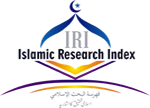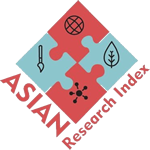Principles of Islamic Entrepreneurship and their Application in Modern Age: A Study with Special Reference to Seerah of Holy Prophet PBUH
Keywords:
Holy Prophet, Seerah, Entrepreneurship, Economics, Business, IslamAbstract
Entrepreneurship is a process of designing, launching and running a new business, which is often initially a small business. It enhances the growth of social welfare, creates job opportunities, brings Innovations, leaves impact on community development, creates political and economic integration of outsiders, improves standard of living as well as promotes research and development. Due to its long-lasting multidimensional effects, our Holy Prophet PBUH encouraged the believers to launch and run the business. This academic work aimed at addressing the principles of Islamic entrepreneurship and their usability in contemporary era. The research was conducted by keeping in view the entrepreneurial practices of Holy Prophet PBUH. For comprehensive understanding of underlying theme, the article was divided into three sections. The first section dealt with the introduction to entrepreneurship and its essential elements, the second section addressed the Islamic principals of entrepreneurship with respect to Seerah, and the third section suggested a theoretical framework for the application of these principles. The systematic review of literature revealed that our Holy Prophet PBUH provided detailed guidelines about innovating, risk taking, launching, and managing the business. The most common principles of his entrepreneurship were faith, trust in Allah Almighty, appropriate utilization of resources, production of legal products, sincerity in efforts, honesty in dealings, care for society and environment, transparency in all affairs, and consultation with shareholders in making decisions. These principles increased the profit, promoted social welfare, and played a significant role in economic stability. In the light of cited literature, the research recommended to take guidance from Prophetic principles in order to promote peace and prosperity on individual and collective level. Qualitative research approach was employed for the collection, demonstration and analysis of data.
References
Talatappeh, M. B. B., and M. R. Tavalaee. “The components of Islamic entrepreneurship pattern based on religious teachings.” Modern Applied Science 10, no. 6 (2016): 37.
Fauri, Ali bin Hassam, Kanz ul Ummal (Bairut: Moassisah Al-Risalah, 1981), 4: 33, Hadith no. 9357.
Mylonakis, Ioannis. "A Quranic and al-Hadis Perspective of The Entrepreneurial Characteristic." Conflict Resolution & Negotiation Journal 2014, no. 3 (2014).
Farhadullah & Qaisar Bilal, “Karobari Tash-heer aur Akhlaqiat: Seerat Tayyyabah ki Roshni mey.” Al-Ilm, 2 no. 2 (2018): 98.
Al-Quran, 62: 10.
Al-Quran, 28: 77.
Faizal P. & Rameli, The Muslim Entrepreneurs Characteristics from Mu’amalat Perspective, Paper Proceeding of the 5th Islamic Economics System Conference (IECONS 2013), "Sustainable Development Through the Islamic Economics System”, Organized By (Faculty Economics and Muamalat, Universiti Sains Islam Malaysia, Berjaya Times Square Hotel, Kuala Lumpur, 4-5th September 2013): 478.
Ramadani, Veland & Dana, Léo-Paul & Ratten, Vanessa & Tahiri, Sadush. The context of Islamic entrepreneurship and business: Concept, principles and perspectives. International Journal of Business and Globalisation, 15 (2015): 252.
Al-Quran, 61: 10-11.
Al-Quran, 24: 37.
Hamid, A.S. and Sa’ari, Z.C. ‘Reconstructing entrepreneur’s development based on al-Quran and al-Hadith’, International Journal of Business and Social Science, 2 no. 19 (2011): 251.
Behqi, Ahmad bin al-Hussain, Al-Sunan al-Kubra (Haider Abad: Majlim Dairah tul Maarif al-Nizamiyah, 1344 A.H), 5: 266, Hadith no. 10719.
Darmi, Abdullah bin Abdul Rehman, Sunan Al-Darmi (Bairut: Darul Kitab Al-Aarabi, 1407 A.H), 2: 322, Hadith no. 2538.
Al-Quran, 2:275.
Behqi, Al-Sunan al-Kubra, 5: 267, Hadith no. 10725.
Behqi, Al-Sunan al-Kubra, 5: 344, Hadith no. 11205.
Ahmad bin Hanbal, Musnad Ahmad bin Hanbal (Bairut: Moassisah Al-Risalah, 1999), 15: 382, Hadith no. 9620.
Mughal, Munir Ahmad, Islamic Concept of Partnership (December 24, 2011). Available at SSRN: https://ssrn.com/abstract=1976624 or http://dx.doi.org/10.2139/ssrn.1976624
Al-Quran, 4: 29.
Behqi, Al-Sunan al-Kubra, 6: 100, Hadith no. 11877.
Al-Azmi, Zia urrehman, Al-Minna tul Kubra Shara wa Takhreej al-Sunan al-Kubra (Ryaz: Maktaba tul Rushd, 2001), 5: 347.
Al-Quran, 38: 24.
Behqi, Al-Sunan al-Kubra, 6: 79, Hadith no. 11761.
Al-Quran, 42: 38.
Al-Tabrani, Suleman bin Ahmad, Al-Mojam ul Aosat (Cairo: Darul Haramain, 1415 A.H), 6: 365.
Al-Tirmizi, Muhammad bin Isa, Sunan al-Tirmizi, (Egypt: Shirka Maktaba wa Matba Mustafa al-Babi al-Halbi, 1975), 3: 598, Hadith no. 1315.
Behqi, Al-Sunan al-Kubra, 5: 320, Hadith no. 11047.
Karim Dad, “A Critical Analysis of the Islamic Principles of Trade and Commerce.” Acta Islamica, 1 no. 1 (2013): 37.
Bukhari, Muhammad bin Ismail, Al-Jamey al-Sahih (Bairut: Dar Tuq ul Najah, 1422 A.H), 3: 57, Hadith no. 2076.
Al-Basti, Muhammab bin Hibban, Sahi Ibn-e-Hibban (Bairut: Moassisah Al-Risalah, 1993), 11: 312, Hadith no. 4938.
Al-Quran, 55: 9.
Al-Qadai, Muhammad bin Salamah, Musnad Al-Shahaab (Bairut: Moassisah Al-Risalah, 1986), 1: 443, Hadith no. 759.
Al-Quran, 83: 1-3.
Al-Quran, 5:2.
Fauri, Kanz ul Ummal, 16: 128.
Tabrani, Suleman bin Ahmad, Al-Mojam al-Kabir (Mosul: Maktaba al-Uloom wal Hukam, 1983), 3: 199, Hadith no. 3116.
Bukhari, Al-Jamey al-Sahih, 3: 57, Hadith no. 2076.
Behqi, Al-Sunan al-Kubra, 5: 341, Hadith no. 11183.
Rind, Basheer Ahmad & Laghari, Arshad Munir, “Islam k Karobari Akhlaqi Aqdaar ka Mutala.” Al-Qalam, (June, 2013): 299.
Al-Quran, 2: 280.
Behqi, Al-Sunan al-Kubra, 5: 357, Hadith no. 11294.
Karim Dad, “A Critical Analysis of the Islamic Principles of Trade and Commerce.”: 37.
Behqi, Al-Sunan al-Kubra, 6: 29, Hadith no. 11478.
Al-Quran, 22: 77.

Published
Issue
Section
Copyright (c) 2019 Al-Meezan Research Journal

This work is licensed under a Creative Commons Attribution 4.0 International License.



